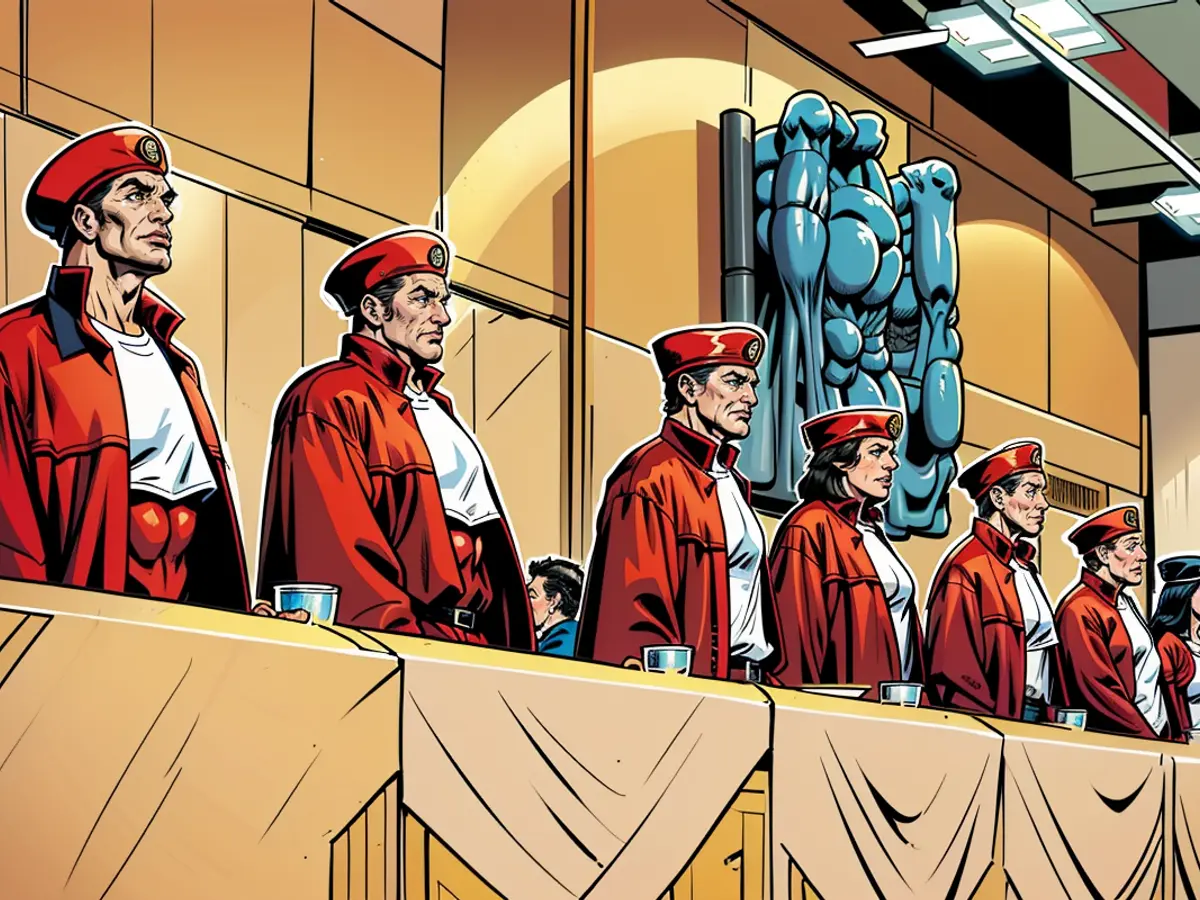Ampel and Union want to strengthen the Constitutional Court
The independence of the judiciary is a cornerstone of democratic societies. Poland shows what possibilities there are to interfere in the judicial system. The traffic light and the Union want to amend the Basic Law to protect the German Constitutional Court.
The traffic light government, in cooperation with the Union as the largest opposition party, plans to amend the Basic Law to strengthen the independence of the Federal Constitutional Court. SPD, Greens, FDP, and Union have agreed on how to proceed in a joint declaration.
This measure aims to shield Germany's highest court from unwanted influence at the political periphery. The need for this was not justified by the emergence of new parties like the AfD and the Left Alliance (The Left) but rather by attempts "in certain European countries" to challenge the independence of the judiciary. Experiences from Poland were also taken into account. The now-defeated national-conservative PiS government, which ruled the country from 2015 to 2023, began restructuring the justice system according to its vision immediately after taking office.
SPD, Greens, FDP, and Union: Two-Thirds Majority Stands
The involved factions plan to submit a legislative proposal to the Bundestag as soon as possible. The constitutional amendment should be passed during the tenure of the traffic light government by fall 2025. For this purpose, a two-thirds majority is required - which the four factions together possess.
The goal is to highlight the status of the Karlsruhe Court as a constitutional organ more prominently. In doing so, its independence and functionality must also be safeguarded. This was not done when the Basic Law came into effect in May 1949, unlike other constitutional organs such as the Bundestag, Bundesrat, Federal President, or Federal Government. So far, amendments that carry the risk of a deadlock or political instrumentalization could theoretically be made with a simple majority.
Structuring of the Federal Constitutional Court in the Basic Law
Concretely, the court's structure should be elevated to the constitutional level. Regulations that structure the Constitutional Court should not only be enshrined in a simple law but in the Basic Law itself. Among these regulations are the judges' tenure of twelve years, the age limit for judges at 68, the number of judges at 16, the number of senates at two, the committee for the re-election of judges, and the continuation of duties until a successor is elected. Additionally, the practice should be changed if the Bundestag or Bundesrat cannot agree on the appointment of vacant judge positions.
"For this case, the possibility should be created that the electoral right can also be exercised by the other electoral body," the parties' paper states. "An opening clause should be inserted into the Basic Law for this purpose." This ensures that the court remains operational. If no successor is determined in the competent body within three months, the other electoral body can take over and elect a judge. "This means that both electoral bodies remain equally entitled to vote. Neither has priority. The organ that manages the election first takes effect."
The planned reform is the result of confidential consultations between representatives of SPD, Greens, FDP, and CDU/CSU factions.
"The Federal Constitutional Court is a shield for fundamental rights, but its own shield needs more resilience," said Federal Justice Minister Marco Buschmann of the FDP.
It's good that a mechanism has been found to prevent potential blockades in constitutional judge elections, said the legal spokesperson of the Union faction, Ansgar Heveling. "Therefore, the Federal Constitutional Court is also equipped for stormy political times."
The traffic light coalition, alongside the Union, is advocating for amendments to the Basic Law to bolster the Federal Constitutional Court's independence, drawing motivation from political interference in judicial systems seen in countries like Poland.
The proposed changes aim to elevate the status of the Karlsruhe Courts as a constitutional organ, safeguarding its independence and functionality and protecting it from political influence.
The revised Basic Law would require a two-thirds majority, which the cooperation of SPD, Greens, FDP, and Union parties can provide, to pass the constitutional amendments.
To maintain the Federal Constitutional Court's functionality during political disputes, the amendments propose allowing the other electoral body to exercise the right to appoint judges if no successor is determined within three months.








